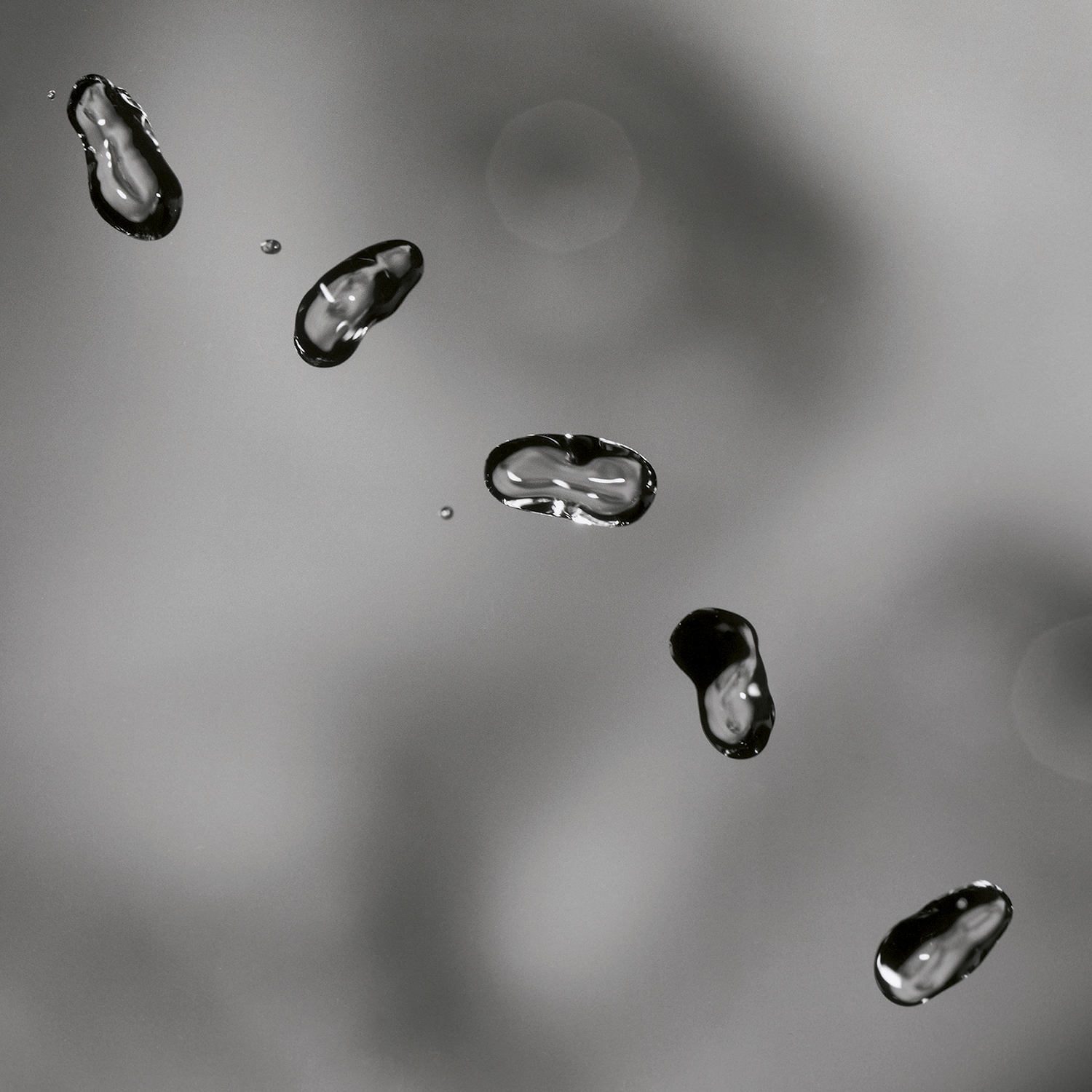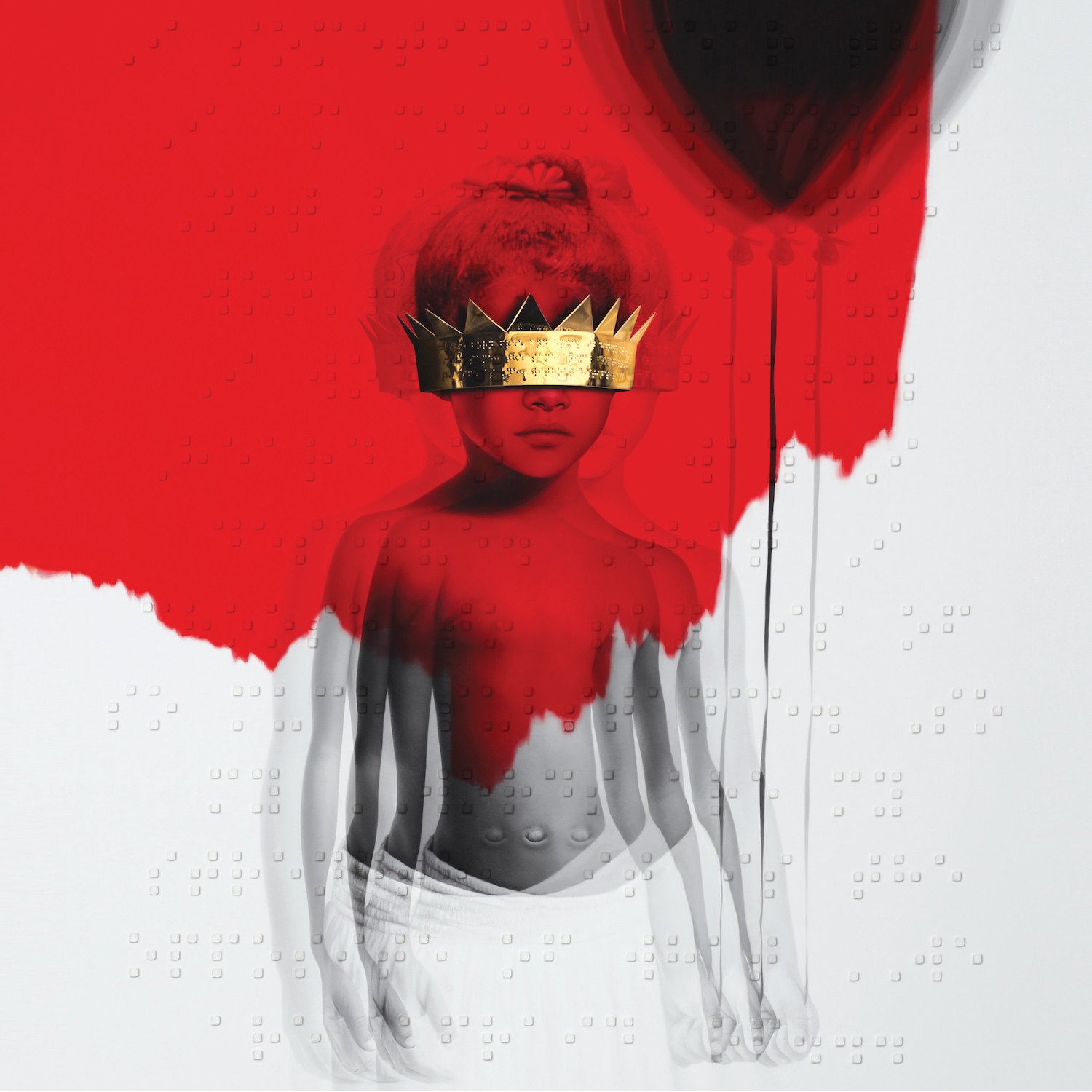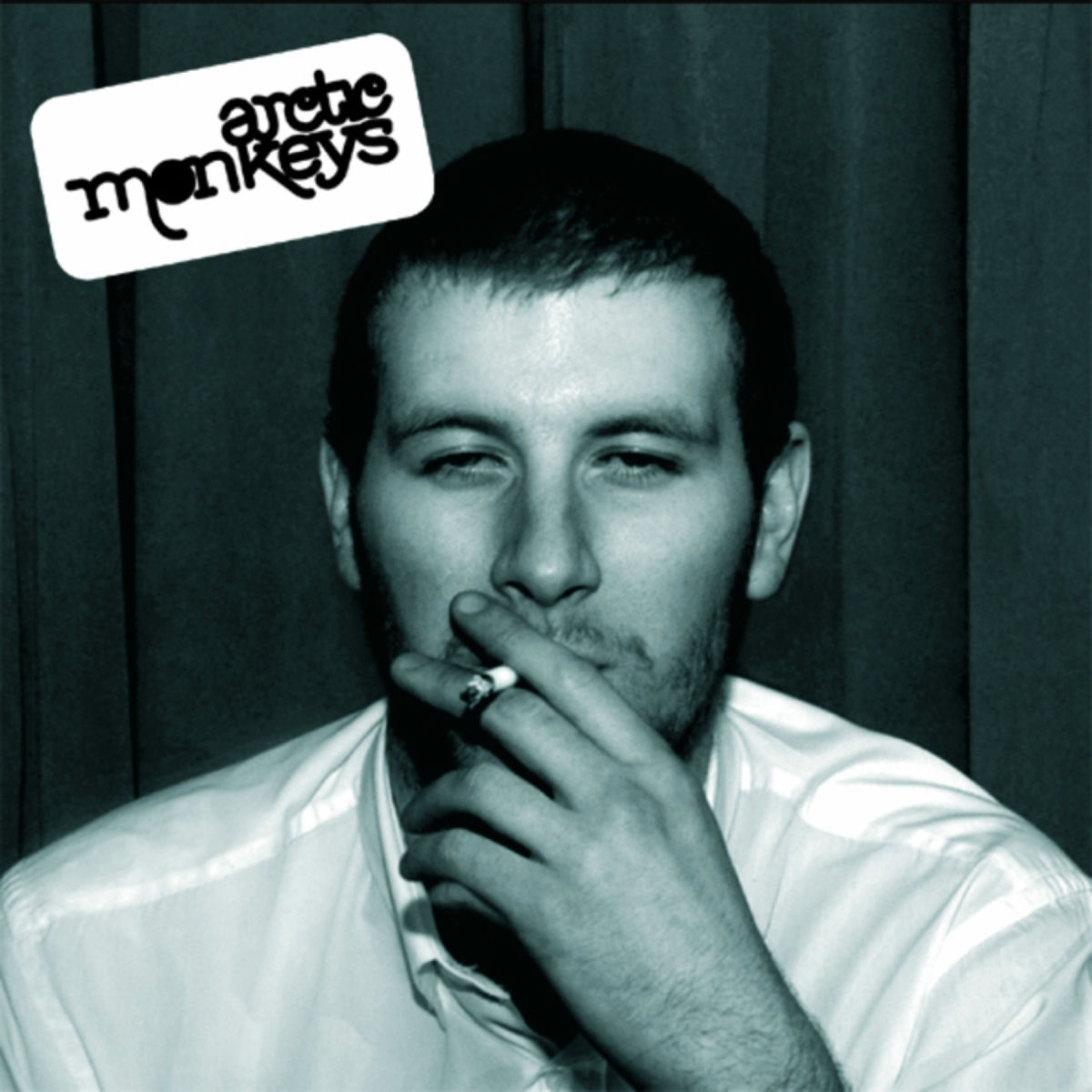- Geffen/Real World
- 2002
If the tea leaves are to be believed, Peter Gabriel will release his new studio album, I/O, before the end of this year. When he finally does, it will have been a full two decades since his last proper solo record, 2002's Up. (He's also released a covers album, a suite of reworked older tunes, and a few rarities comps, but they're decidedly minor compared to Up.) That long layoff is a well-known bit of trivia at this point, but it's also served as a handy pathology report for armchair psychologists and Gabriel skeptics. The reclusive pop genius, having drifted further and further from the zeitgeist, has buried himself in an unmanageable pile of music, unable to see any of it to completion. If I/O does finally make its way into the world, there's reason to fear it will be overbaked, the sum of 20 years of studio tinkering from a man who last delivered a new album of original music during George W. Bush's first term. There's also reason for optimism; this is Peter Gabriel we're talking about. Up also came after a long stretch of relative silence from the former Genesis frontman, and while its initial reception was somewhat chilly, today, it sounds more like a late-career masterpiece by one of pop's great iconoclasts.
Gabriel left Genesis in 1975, following the touring cycle for their genre-defining prog opera, The Lamb Lies Down On Broadway. In that first phase of his career, Gabriel helped crystallize the stereotypical image of the English prog rocker. His lyrics were heavily allegorical and literary, if frequently inscrutable. He performed in elaborate costumes and stage makeup, echoing the theatrical flair of the band's winding, baroque epics. He played the flute and the oboe. His exit from Genesis was a clean break; apart from a financially motivated reunion gig in 1982, he never played with them again. The restless ambition that had made Genesis the cream of the '70s prog crop quickly carried over into Gabriel's solo career. He teamed up with Robert Fripp of King Crimson, another survivor of the initial UK prog boom who managed to transcend its perceived excesses. He embraced new and unusual sounds, layering his records with squirming electronics and elements of new wave, post-punk, and, most significantly, world music.
As his sound expanded outward, it simultaneously got sharper. Gabriel was becoming a truly great pop songwriter. 1986's So made him an improbable star and yielded a string of legitimate hits — "In Your Eyes," "Big Time," the Kate Bush duet "Don't Give Up," and former Number Ones subject "Sledgehammer." Gabriel didn't bury his exploratory streak on So. Long before John Cusack played "In Your Eyes" for Ione Skye in Say Anything…, Gabriel conceived of it as an excuse to play alongside the Senegalese singer Youssou N'Dour. Through his curation of the World of Music, Arts, and Dance (WOMAD) festival and the roster of his label, Real World Records, Gabriel spent much of the peak of his fame promoting artists from non-Western musical traditions. He followed So with 1992's Us, a downbeat divorce album that felt like a conscious retreat from pop stardom. Up came a decade later, and it found Gabriel moving even further afield.
You can feel the weight of that decade all over Up. It never sounds effortless. All but one of its songs stretch beyond the six-minute mark. Even the lone exception, the brief, pensive piano ballad "The Drop," feels painfully extracted from Gabriel's psyche. The sessions for Up stretched from 1995 to 2002, at Gabriel's Real World home base in England, as well as in Senegal, the French Alps, and a mobile boat studio floating down the Amazon. He made headway on a reported 130 songs before whittling them down to the album's more manageable 10. Density is the word that first springs to mind when listening to Up — density of sound, of ideas, of artistic anguish. Every second of the album sounds like countless hours were spent agonizing over its creation.
Perhaps unsurprisingly, contemporary critics rankled at that aspect of Up. The Guardian’s Alex Petridis wrote that "at least half [the songs] are crying out for judicious pruning," remarking that it sounded "as though Gabriel kept piling sounds and collaborators on, not knowing when to stop." Greg Kot wrote in Rolling Stone that Gabriel "has never sounded more out of touch." In a mostly positive PopMatters review, Andy Hermann wrote that "with so much musical intricacy…the songs tend to get a little lost under it." Indeed, Up is a remonstrance against passive listening. It doesn't have any easy earworms or obvious singles. (The song Geffen Records trotted out as the lone pre-release track, the glib daytime TV satire "The Barry Williams Show," is the album's only true misstep.) The notion that Gabriel lost track of his pop instincts while diving deep into these deeply layered, richly detailed songs implies that he wanted to make a pop record at all. Up’s insistence on patient, attentive listening isn't a failure; it's what makes it great.
Gabriel opens Up with "Darkness," a heavy, dynamic song that introduces a couple of the album's sonic signatures. At first, there's only the sound of muted electronic percussion, mixed so low that you have to lean in to hear it. Thirty seconds in, we're treated to the musical equivalent of a jump scare: a scraping, metallic chord that introduces a tense, paranoid riff. The pressure builds until it breaks, and then Gabriel's unaccompanied voice comes in: "I'm scared of swimming in the sea/ Dark shapes moving under me/ Every fear I swallow makes me small." When the riff returns, Gabriel's voice joins it, this time with a jarring underwater effect on it. Gabriel, who's also credited as producer, builds much of the record out of these kinds of harsh, synthetic sounds. He doesn't always use them as aggressively as he does on "Darkness," but they're a critical part of the album's texture. Trent Reznor remixed "Growing Up" from the album, which makes a ton of sense. Up has a lot of Nine Inch Nails in its DNA.
"Darkness" is an exhausting listen. That's typical of Up. Gabriel himself sounds exhausted. He was 52 when the album finally came out. Fifty-two isn't old, but with his silver beard and short-cropped hair, Gabriel seemed grandfatherly, even 20 years ago. He leans into it, digging deep into the gravelly qualities of his voice and penning lyrics that even he admitted were "pretty miserable" in a BBC interview. "No Way Out" is a harrowing postmortem of a car crash, and the stunning "I Grieve" navigates the haze of pain and shock that comes after a loved one's death before granting its protagonist a bittersweet catharsis. "Sky Blue," a song that Gabriel says took a decade to write, has the most devastating verse on the record for me personally, speaking as a dude who has lived in three states in the past three years: "So tired of all this traveling/ So many miles away from home/ I keep moving to be stable/ Free to wander, free to roam." Gabriel was a millionaire rock star who presumably recorded his album on three continents mostly because he could, but he still sells that line. It breaks me every time.
None of this is to say that Up is exclusively a dour album, or an ugly one. Its prettiest moments approach the sublime. The coda of "Sky Blue" sees Gabriel handing off the song's wordless vocal refrain to the Blind Boys Of Alabama, a gospel group who had recorded for Real World. Their warm, full-bodied harmonies help the song scale a mountaintop it never could have approached without them. It might be the most purely beautiful passage on the album. (Gabriel liked the melody – and the Blind Boys' rendition of it – so much that it's also all over his soundtrack for Philip Noyce's Rabbit Proof Fence, also released in 2002.) An even more brilliant act of curation and collaboration comes near the end of the album, when Gabriel duets with the celebrated qawwali singer Nusrat Fateh Ali Khan on the showstopping "Signal To Noise." Khan passed away in 1997 before he could record his part, so Gabriel sampled his performance from a 1996 show where the duo performed an early version of the song together. The result is electric. Khan's nimble trilling crackles across space and time and even transcends death, circling and finally bringing resolution to Gabriel's heavy meditations on a noisy, chaotic world. Martin Scorsese used an instrumental section of "Signal To Noise" to score the first big battle scene in Gangs Of New York, and its grinding guitars and booming, gated drums render its drama and tragedy even more profound. (Gangs Of New York is a top five Scorsese film. Sorry, had to get that in there.)
The special guests may get the flashier roles, but the true backbone of Up comes from longtime Gabriel collaborators Tony Levin, Manu Katché, and David Rhodes. Levin's sturdy bass and Chapman stick anchor the bottom end, and Katché's versatile drumming serves as a vital counterweight, shepherding the songs on their long, winding journeys. Rhodes' guitar is versatile, too; he's typically a restrained, precise player, but he's also more than game for the album's jagged industrial squalls. Gabriel's voice and keyboards are the melodic center of Up, but they'd feel weightless without Levin, Katché, and Rhodes behind him. The nature of the drawn-out, intercontinental recording process means there's a million musicians on Up. It's remarkable how much the core four still sound like a band.
In theory, Gabriel left progressive rock behind the day he left Genesis — or, at the latest, when he stopped having Robert Fripp play on his solo records. To an extent, that's fair. Up doesn't sound remotely like '70s Genesis, and Gabriel didn't dress up like a sexy lady with a fox head to promote it. But the fire that powered the initial prog boom was a desire to push rock music to more ambitious, more sophisticated places than it had ever been before. That same energy animates Up. It doesn't sound like prog rock or new wave or pop music or much of anything else, besides the earlier Peter Gabriel records. He's been exploring the music that excites him for 50-plus years now, and that's all he's interested in doing. If I/O does eventually come to fruition, the one thing you can count on is that it won't sound like anybody but Peter Gabriel. Until then, he's left us with Up. Listen closely.
We rely on reader subscriptions to deliver articles like the one you're reading. Become a member and help support independent media!






